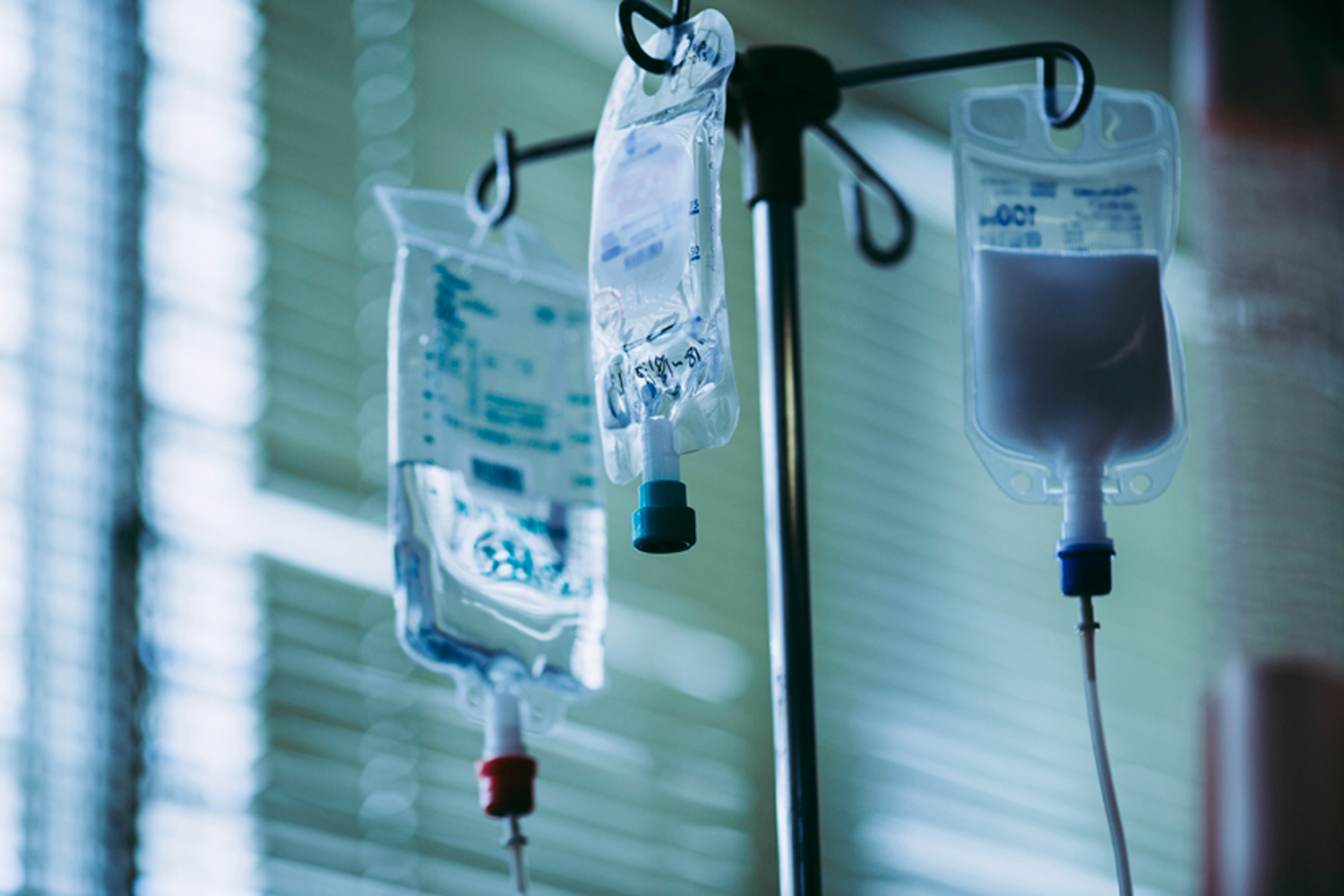IMMUNE CHECKPOINT INHIBITORS, a type of immunotherapy that stimulates the immune system to help the body fight cancer, has improved patient outcomes for several cancers. Most recently, immune checkpoint inhibitors—both with chemotherapy and without—have begun to gain traction in treating advanced esophageal cancers as well.
In the last four years, the Food and Drug Administration (FDA) has approved two immunotherapy drugs, Keytruda (pembrolizumab) and Opdivo (nivolumab), to be used with chemotherapy in recurrent or advanced squamous cell carcinoma of the esophagus. In May 2022, the FDA also approved a combination approach with Opdivo and Yervoy (ipilimumab), which gives patients an entirely chemotherapy-free treatment option.
The combination approval was based on results from the CheckMate 648 trial, which were published Feb. 3, 2022, in the New England Journal of Medicine. The study analyzed 970 patients who had unresectable advanced, recurrent or metastatic esophageal squamous cell carcinoma. Patients were randomly assigned to receive one of three treatments: chemotherapy alone, Opdivo plus chemotherapy, or Opdivo plus Yervoy.
In this study, patients assigned to the chemotherapy-free combination had a median overall survival of 12.7 months compared with 10.7 months for patients assigned to chemotherapy alone. But the survival benefit was more pronounced in patients whose tumors expressed a high level of a protein called PD-L1, a biomarker that is used to gauge whether the cancer has a greater chance of responding to checkpoint inhibitors, says Elizabeth C. Smyth, a consultant in gastrointestinal oncology at Cambridge University Hospitals NHS Foundation Trust in Cambridge, England.
Among patients with advanced esophageal cancer that expressed high levels of PD-L1, treatment with Opdivo plus Yervoy yielded a median overall survival of 13.7 months compared with 9.1 months in those who received chemotherapy alone. The combination of Opdivo plus chemotherapy prolonged median overall survival to 15.4 months in patients whose tumor expressed this protein. However, the study was not designed to compare and contrast these two immunotherapy approaches, but rather to compare outcomes of both immunotherapy approaches to chemotherapy alone.
While the prospect of a chemotherapy-free regimen may sound appealing to patients, Smyth made the case that the chemotherapy-free combination should not replace the current standard of care for patients with advanced esophageal cancer in the November 2022 Lancet Oncology. She points out that a higher percentage of people had their tumor respond or shrink during treatment when Opdivo was combined with traditional chemotherapy as opposed to the chemotherapy-free regimen in the CheckMate 648 study.
Advanced esophageal cancer typically grows rapidly and causes troublesome symptoms, including difficulty swallowing. “Most patients have cancer that is causing symptoms, and we want to get that tumor response. We want to shrink the tumor quickly,” Smyth says.
Currently, clinicians do not know which patients will benefit from the Yervoy-Opdivo combination, says Steven Maron, a medical oncologist at Memorial Sloan Kettering Cancer Center in New York City.
“The biggest concern I have is that we often have a narrow window to get treatment going and reverse the course of this disease,” Maron says. “We don’t want to miss that window. Only about 15% to 35% of patients will benefit from immunotherapy in general, and you have to ask if the patient can wait four to eight weeks to give this approach a shot.”
Maron believes the immunotherapy-only combination could benefit a select group of patients with advanced disease who have low tumor burden, although this is not how the disease typically presents. Research also shows patients with advanced esophageal cancer who take immunotherapy and chemotherapy together are more likely to have a complete response compared with chemotherapy alone. “Chemotherapy plus [an immune checkpoint inhibitor] is the ultimate hedge; it is going to give you the greatest response rates in the greatest number of people, fastest,” Maron says.
While many patients fear treatment with chemotherapy, Smyth notes that oncologists can adjust chemotherapy dosages to make the treatment more tolerable. “Historically, these cancers have been very hard to treat, and these new immunotherapy options are a real ray of hope for these patients,” she says.
Cancer Today magazine is free to cancer patients, survivors and caregivers who live in the U.S. Subscribe here to receive four issues per year.





